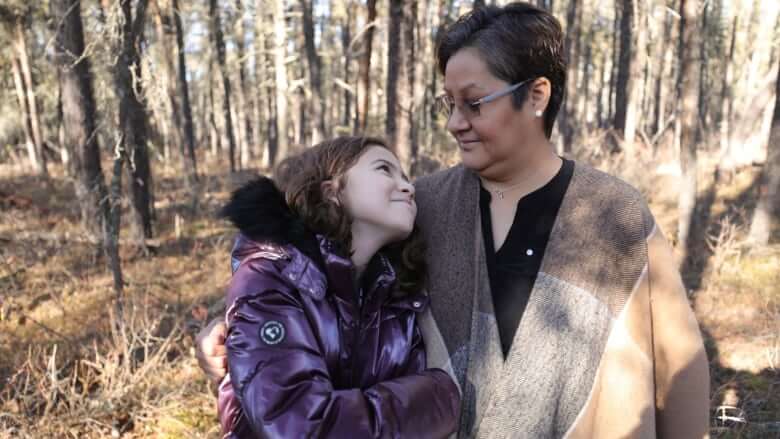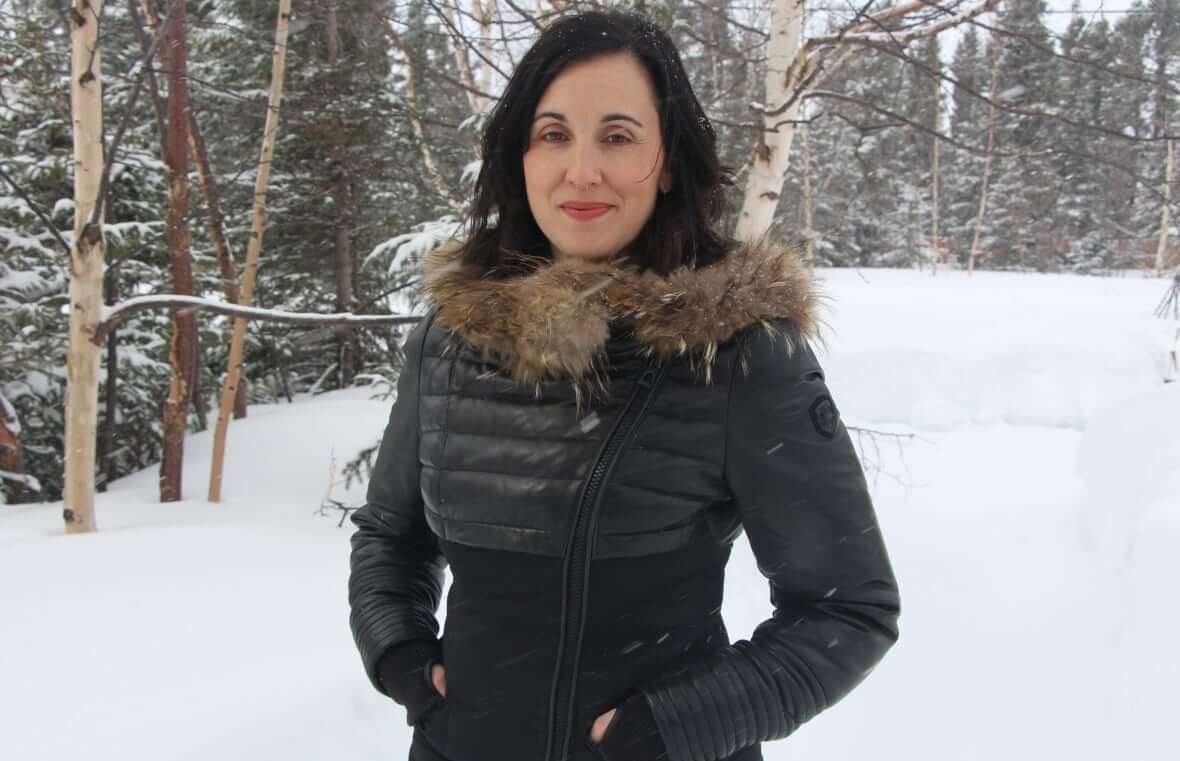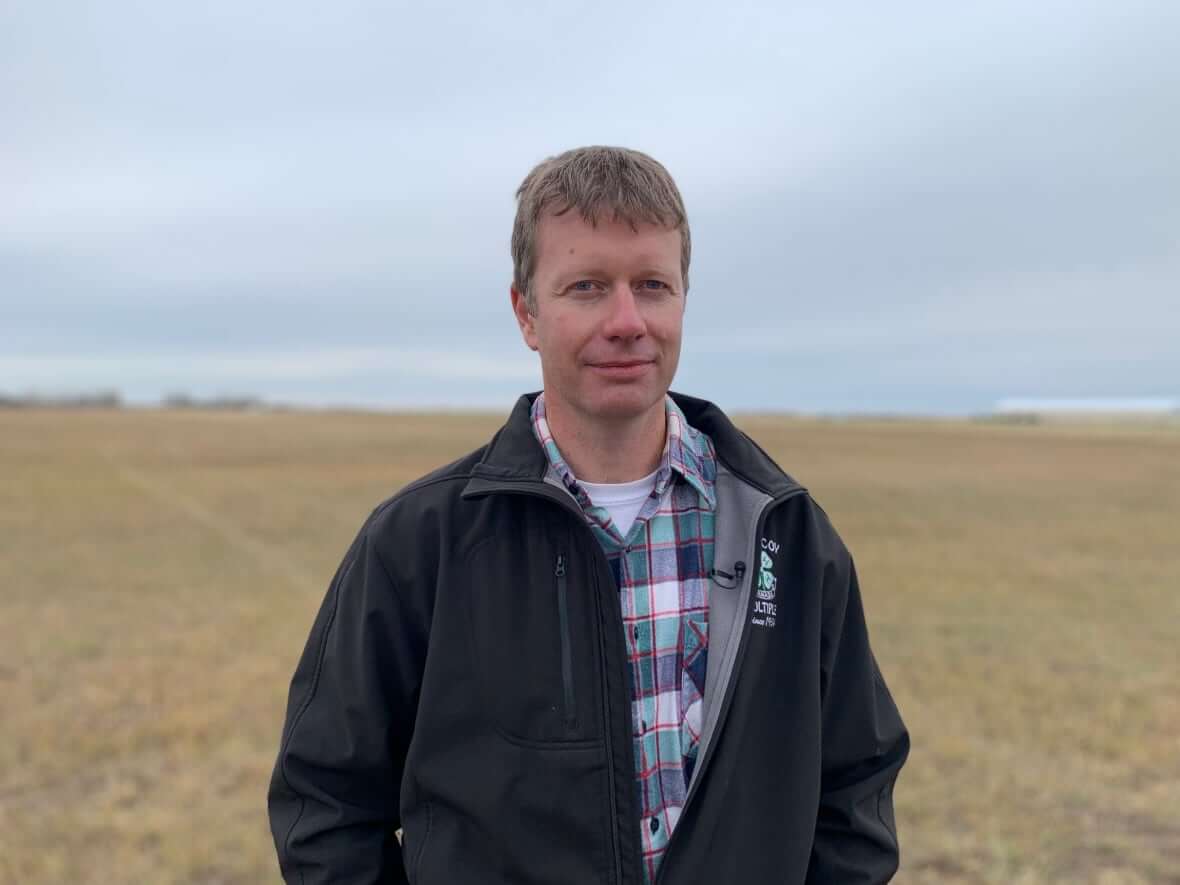How climate change is causing grief, anxiety and depression

Diana Violet Bird reaches for a rosehip as she patiently teaches her nine-year-old daughter how to forage for edible wild plants in the forest.
“When the flowers fall off, you get what’s called a rosehip,” she told her. “Rosehip is so good for you — it is medicine.”
Bird, who is from Montreal Lake Cree Nation in Saskatchewan, grew up in the boreal forest and has been foraging for decades. She learned the skill from her mother and is now passing it onto her daughter.
This year, though, there was little food to gather, after the province was hit by a deep freeze and then a severe drought — extreme weather events that are expected to worsen with climate change.
“This year was the first year … the fiddleheads where I usually pick were not good,” said Bird. “That was the first time in 35 years that I have experienced that — and that’s directly from climate change.”
And as these events are reshaping Bird’s world, she says she’s left feeling devastated by the loss.
“I had to buy fiddleheads for the first time from a fellow forager. That felt so wrong to me.”
Ecological grief
The frustration and loss Bird is feeling has been dubbed ecological grief, or eco-grief. It’s sometimes called eco-anxiety.
“It’s our grieving and our emotions related to environmental loss,” said Ashlee Cunsolo, the dean of the School of Arctic and Subarctic Studies at the Labrador Institute of Memorial University, who helped coin the term ecological grief.

“Whether it’s farmers in Australia, or Inuit in Labrador, or people out on the West Coast with the forest fires, and in the Prairie regions with drought, we’re seeing so many more experiences with ecological grief and loss — and the related senses of stress, of anxiety, of depression, sadness and loss.”
Some communities are particularly affected by ecological grief, said Cunsolo, including Indigenous people, farmers and fishers. “People who are really connected closely to the environment for livelihoods and culture,” she said.
Drought leading to deep ecological grief
Glenn Wright has also felt that loss. Looking out at the fields on his grain farm in central Saskatchewan, he’s reminded of how this year’s severe drought ravaged his crop.
Wright’s farm is nestled between the communities of Delisle and Vanscoy, just southwest of Saskatoon. He has been farming for about 15 years on his land.
“This is the worst drought that I’ve ever experienced,” he said. “The yield was only about 10 to 15 per cent of what it would normally be. And so those crops didn’t even cover the input costs when we harvested them.”
For years, Wright has worked to lower his carbon footprint and that of his farm. He’s installed solar panels and drives an electric vehicle to lessen his reliance on fossil fuels. He’s also been experimenting with intercropping, or planting more than one crop together to support biodiversity, and using organic fertilizer, to avoid nitrogen fertilizers made with natural gas.
But he says unrelenting anxiety about climate change is taking its toll.
“I just want to leave the world in a better place for my kids. And I’m exhausted after 15 years of trying my best to inspire people to change,” he said, wiping away tears. “We need government action to make those changes.”

A global study included in the Lancet Countdown’s recent annual report on health and climate change found that exposure to heat waves in 2020 increased negative expressions on Twitter by 155 per cent.
The study linked more than six billion global geolocated social media posts from Twitter with daily weather records from some 40,000 geographic regions, including data from nearly every country.
“What we found is that heat waves worsen sentiment. They make people write and express themselves with more negative language. And it actually turns out that heat waves diminish our level of positive language,” said study co-author Kelton Minor.
Climate change is increasing the frequency and intensity of heat waves in Canada, Minor said, pointing to the June heat wave in the Pacific Northwest and Western provinces.
That extreme weather event recorded temperatures far above 40 C, including setting a record for the hottest temperature ever recorded in Canada, at 49.6 C in Lytton, B.C. — just before the community was destroyed by wildfire and hundreds were displaced.
Minor said additional research is needed to track the full mental health burden of changing climatic conditions.
Risk for more ecological grief
According to Cunsolo, the emotional toll of such environmental loss will only increase as extreme weather events intensify.
“We need to figure out how we can support people, as more and more people are experiencing various forms of ecological grief due to climate change,” she said.
As for Diana Violet Bird and Glenn Wright, they both say world leaders need to have bolder goals on climate change.
Wright is attending the COP26 climate talks in Glasgow this week to advocate for climate action on behalf of the National Farmers Union.
The Conference of Parties (COP), as it’s known, normally meets every year and is the global decision-making body set up in the early 1990s to implement the United Nations Framework Convention on Climate Change and subsequent climate agreements.
“I have to find hope in action,” said Wright. “That’s what motivates me to keep trying.”








Redes Sociais - Comentários